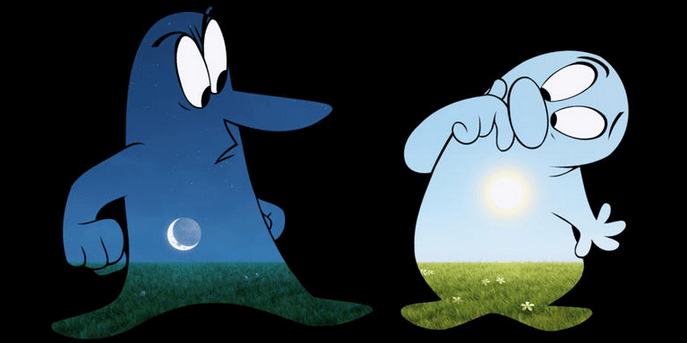

People who sleep late are often seen as being lazy and unproductive. The fact that many of these late risers are up into the wee hours doesn’t do much to change how they are perceived because, in our culture, in order to be an effective and productive member of society, you have to be ready for work at 9 a.m. sharp. If you’re not, well, you should probably rethink your life choices.
The issue with this mentality is that it seems to run contrary to what science tells us.
We know that individuals’ circadian rhythms (the day/night cycle that is generated by internal biological clocks) vary. Most clocks run, on average, a little bit longer than 24 hours, while some obviously run slightly shorter. We also know that some people require less sleep than others in order to function in the same way. But that’s not all. Mounting research indicates that genetics, not life events or personal choice, determines sleep patterns.
That’s right. Science suggests that night owls are born, not made. A new study just lent significant weight to the idea that our sleep patterns are not determined by character flaws, but genetics.
In a study that was published in the journal Frontiers in Neurology, scientists looked at fruit flies in order to determine how genetic variations may play a role in whether one prefers to rise early or late. Looking at fruit flies may seem a little odd; however, according to Dr. Eran Tauber, one of the co-authors on the paper, these serve as “model organisms,” creatures that actually have a very similar genetic clock to humans. As a result, the genes that control sleep patterns in fruit flies may operate under similar parameters in humans.
Tauber justifies this choice, stating that, “In this new study, we have used fruit flies, whose gene clocks are very similar to human, to get a first insight into the molecular basis of ‘morningness/eveningness’ preference. Because this genetic system is so similar between insects and human, there is a good chance that some of the genes that we have identified in flies would be also important for diurnal preference in humans.”
The team asserts that it identified 80 genes that seem to have an impact on this behavior. In fact, after identifying these genes, the scientists were able to breed the late risers in order to produce more chronotypes (behavioral preferences) like this, which ultimately reinforces the genetic basis of the behavior.
The start of the study was completed easily enough, as the team simply observed the point at which the fruit flies emerged from their pupal case. From here, they conducted a DNA analysis on the flies. From this analysis, they discovered that the fruit flies’ genes became active at different times and also displayed specific differences. This means that molecular processes are not simply activating at different times, which is what we previously believed; rather, they are entirely different. “The end point might be similar, but the different molecular routes result in a different journey time,” Tauber explains.
Tauber goes on to note that this research is important because many individuals suffer as a result of a cultural impetus to function during specific hours. We know that the amount of sleep that a person requires alters with age, and that the time that school starts may cause problems for some students. And with mounting science to back these differences, it might be a good idea to seriously invest in accommodating other sleep patterns so that people can be as effective and productive as possible.
From Quarks to Quasars is two people, Jaime and Jolene. We want to make the world a more sciencey place. We’re doing that, but with your help, we can do even more.
FQTQ takes a lot of time, money, and effort. Here, you can support us, get to know us, and access extra content: